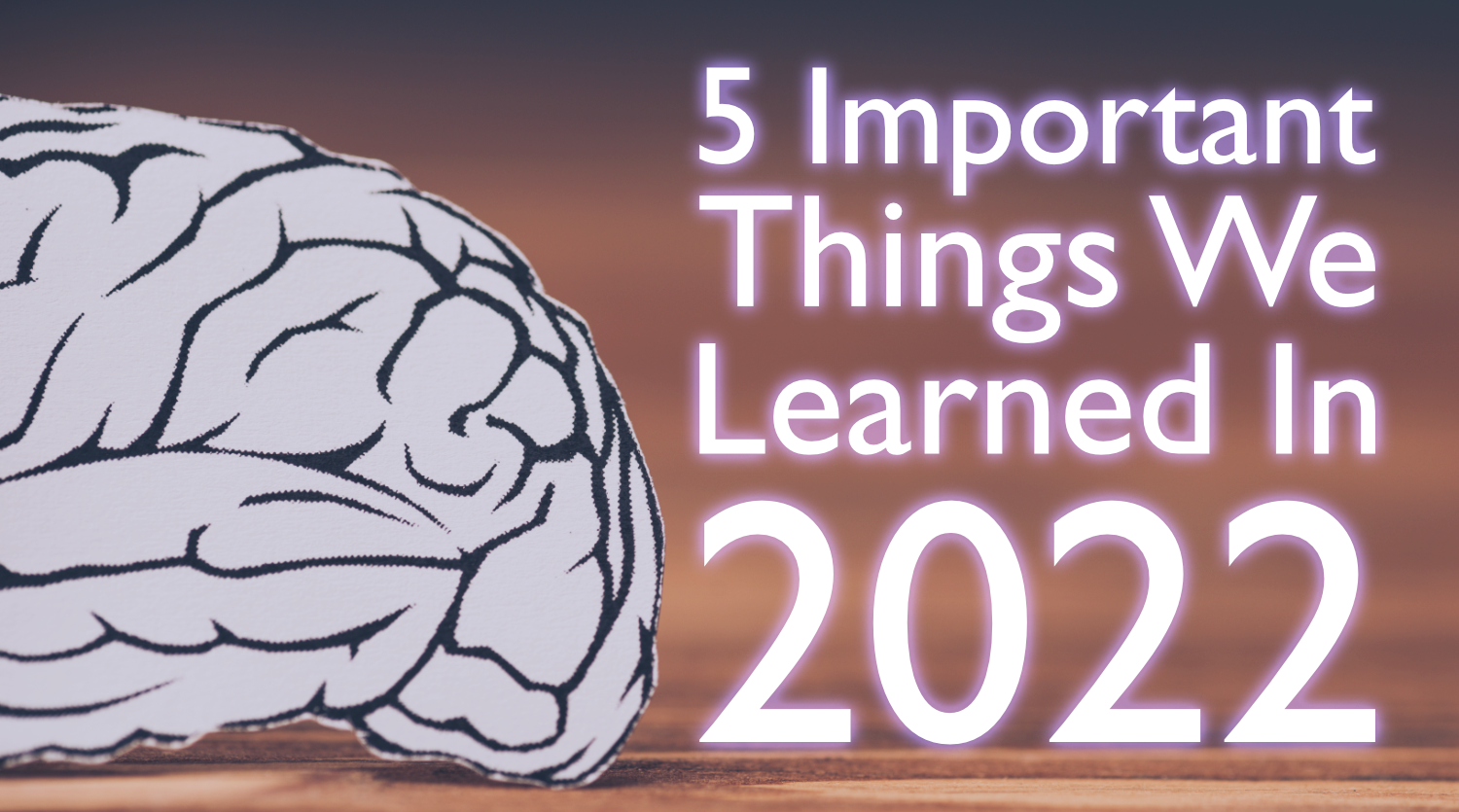
5 Important Things We Learned About Alzheimer’s in 2022
From The Alzheimer’s Association
It has been an exciting year in the field of Alzheimer’s and dementia research. As 2022 comes to a close, we look back at progress made, including discoveries into the causes, risk factors and treatment of Alzheimer’s disease and other dementia. Here are five important takeaways:
1
It’s true: Alzheimer’s treatments are getting better. In November 2022 came the announcement of positive results from the global Phase 3 clinical trial of an Alzheimer’s drug called lecanemab, slowing the rate of cognitive decline in study participants by 27% over 18 months. These are the most encouraging results we have seen for an Alzheimer’s treatment to date. A Food and Drug Administration (FDA) decision on accelerated approval is expected soon, potentially making lecanemab the second FDA-approved drug in 18 months.
2
Your daily multivitamin may slow brain aging. Research published in Alzheimer’s & Dementia: The Journal of the Alzheimer’s Association found that taking a multivitamin-mineral supplement every day for three (3) years resulted in a statistically significant cognitive benefit. This is the first positive, large-scale, long-term study to show that multivitamin-mineral supplementation for older adults may slow cognitive aging. These findings have the potential to significantly impact public health — lowering health care costs, reducing caregiver burden — especially among older adults.
3
Sweet tooth? Ice cream, candy and soda may raise the risk of cognitive decline. At the Alzheimer’s Association International Conference (AAIC) last summer, new research found that eating a large amount of ultra-processed food can significantly accelerate cognitive decline. The research was published in JAMA Neurology this December. Although ultra-processed foods (including pizza and hot dogs) make up more than half of American diets, steps can be taken to reduce risk. These include eating a balanced diet, exercising regularly, getting good sleep, staying cognitively engaged, protecting from head injury, not smoking and managing heart health.
4
Experiencing racism is linked to poor memory. Also at AAIC 2022, researchers reported that experiences of structural, interpersonal and institutional racism are associated with lower memory scores and worse cognition in midlife and old age, especially among Black individuals. This is especially important, given that the 2022 Alzheimer’s Disease Facts and Figures reports that Black Americans are about twice as likely, and Hispanic Americans are about one and one-half times as likely, to have Alzheimer’s or other dementias.
5
Wearing hearing aids may reduce risk of dementia. Individuals with hearing loss who used hearing restorative devices had a 19% decrease in risk of long-term cognitive decline, according to research published in JAMA Neurology this December. This data appeared five months after the FDA announced it will allow hearing aids to be sold over the counter, greatly expanding access to 30 million Americans living with hearing loss.
Give Today
$5
$10
$50
$250
$500
Other

